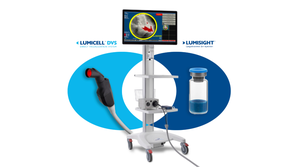July 23, 2013
The consulting and training firm CardioReady says its analysis of data underpinning recent FDA statements about a proposal to up-classify automated external defibrillators (AED) to Class III show there are very few incidents of adverse lifesaving outcomes when the devices are used by nonhealth professionals.
The company says its analysis of 46,003 incidents between 2005 and 2012 showed that many adverse outcomes involved use of professional-grade AEDs by medical professionals.
Incidents involving laypersons using an AED resulted in 377 fatalities, not all which necessarily indicated a problem with the device. CardioReady says the figure equaled an annual average of 47 fatal incidents over the eight-year period, or 0.02% of the estimated 300,000 people who die each year from sudden cardiac arrest.
The company says its analysis also corroborated FDA’s statements indicating low incidence rates in comparison with the estimated number of total public access defibrillators in service.
“While FDA made a concerted effort to clarify both the public health benefits of AEDs as well as FDA’s continued confidence in the efficacy and reliability of these devices, we were concerned that these important aspects of the FDA’s statements were not being conveyed and reinforced to the public audience who stands to benefit from the continued proliferation and use of lifesaving public access AEDs,” said CardioReady CEO John Ehinger. “As a result, we felt compelled to dig deeper into the data.”
About the Author(s)
You May Also Like


